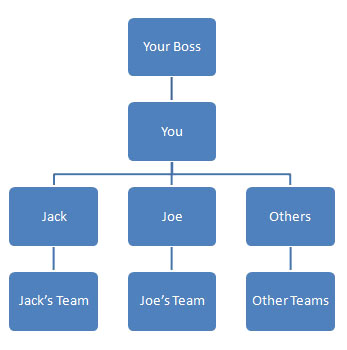Your Geek Isn't Shy. He Is Just Not 'At Home' Yet.
Even though I cannot describe my school life in the friendly neighborhood Indian school as traumatic, but I often use the word 'painful' to describe it rather accurately. From arguments with teachers, to being yelled at by the principal for not getting insanely short haircuts, if there is one thing school did in my life, it is that it left painful scars on my personality that took years of passionate software development to wipe out.
Through the twelve years of schooling I was labeled multiple times.

Here is a short and non-extensive list of labels I received in the twelve years of schooling:
- Introvert.
- Shy.
- Complicated.
- Pull-through (I was fairly skinny back then).
- Trouble maker.
- Not a gamer.
- A vice captain (amongst sixteen other captains and vice captains).
- A very good student.
- A geek.
The list is endless and the labels changed every other day based on every single act that I indulged in, the teachers mood, the teachers interaction with his wife the night before and a gazillion other factors which were beyond my comprehension as a teenager.
To put it mildly, I was totally confused about the role of people like me, who had opinions about everything and people who begged to differ on most things, played in an environment which was supposed to be factory for churning out 'responsible citizens' with shinning white uniforms and really short haircuts.
Long story short, I spent years, feeling that there was 'something missing' or more specifically - 'something wrong' with our so-called education system.
Then, school ended.
Of course there were moments to treasure, but basically, I heaved a sigh of relief that it was over and other than keeping in touch with a few friends and having a couple of really bad dreams about exams during my school life, I never made a conscious effort to look back.
Work life for me was a different experience all together. On the very first day at work, I introduced myself with a rather interesting improvised speech and bagged the most interesting introduction prize. From the very first day at work, one message was loud and clear - be a purple cow - and you can actually get rewarded for being different.
A job later, there were tons of realizations I had experienced that I never had during twelve years of schooling:
- If you did not feel like reading books, there were tons of podcasts and webcasts you could just watch or listen to, in order to pick things up.
- If you did not agree to what your boss was saying, it was ok to interrupt and question him.
- If you did not like the idea of going out to a loud party and dancing all night, you could have some serious fun getting together with a bunch of friends and having conversations on technology, life and management.
- If you did not like the idea of wearing a tie to office, you could wear jeans and T-Shirts.
- If you were late at office, you could work late and still get your work done.
Of all the realizations that I had, here is the most important one: If you did not like things, you were both empowered and free to change them.
Years after school, when I look back to reflect on where my school went utterly wrong and where most organizations that I worked in utterly succeeded at getting the most out of the geek in me, it was all about - making me feel - at home.
What You Need To Know While Working With Geeks.
While schools are busy stereotyping, putting human beings in buckets of categories and labeling them they often tend to miss out of making folks feel 'at home' when they are sitting in a class room listening to a lecture or for that matter, when they are being asked to have 'fun' at school party with loud music.
The thing with the geek within you, is that it likes to live in a nice dark homely cave.
Michael Lopp in his essay on the Nerd Handbook, explains how you can make a nerd venture out of that cave and do something different, like going out on a vacation. He explains how you can get the nerd in you to do new and interesting things:
Map the things he’s bad at to the things he loves. You love to travel, but your nerd would prefer to hide in his cave for hours on end chasing The High. You need to convince him of two things.
First, you need to convince him that you’re going to do your best to recreate his cave in his new surrounding. You’re going to create a quiet, dark place here he can orient himself and figure out which way the water flushes down the toilet. Traveling internationally? Carve out three days somewhere quiet at the beginning of the trip.
Traveling across the US?
How about letting him chill on the bed for a half-day before you drag him out to see the Golden Gate Bridge?
Second, and more importantly, you need to remind him about his insatiable appetite for information. You need to appeal to his deep love of discovering new content and help him understand that there may be no greater content fire hose than waking up in a hotel overlooking the Grand Canal in Venice where you don’t speak a word of Italian.
Today, the once shy geek from high-school interacts with over a hundred people every week, communicates with dozens others. The same shy nerd deeply believes in and nudges other nerds to go out of their way to connect to other human beings.
I enjoy games ranging from ping-pong to ice-skating and the pull-through has been putting on enough weight that he is now thinking of excising to keep his weight under control.
The point here, dear reader, is not to demonstrate how much I have changed over time, but to illustrate how every label that you put on geeks come off, the moment you give the geeks their dark little corner where they feel at home and them allow him to grow from there.
Next time you bump into a geek, and you find yourself attaching labels to the geek, remember, your geek is not shy - he is just not 'at home' yet. Before you label him as shy, introvert, complicated or anything else - try making him feel at home and he just might surprise you.
Something my school never understood, but every organization that employed me, understood rather well.
Something you try spending time to understand as well. Specially If you are a young and budding manager, working with a team of geeks. Go make them feel at home and reap the benefits of having them on your side.
I wish you good luck.







Comments are closed.